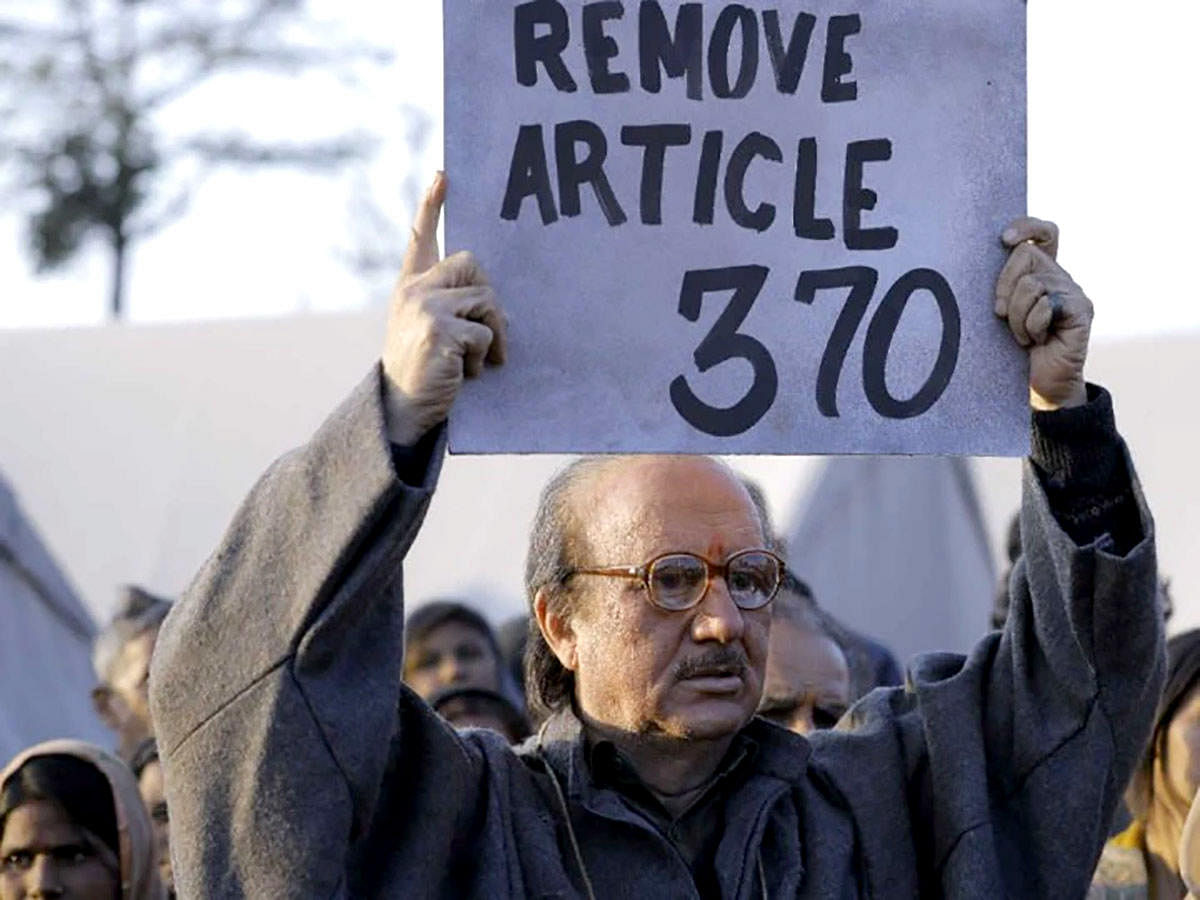
So much has been written about Vivek Agnihotri’s The Kashmir Files that one hesitates to say anything more for fear of repeating whatever has been said. But having just seen the film and considered both sides of the argument, I think a third argument---one not considered---needs to be articulated.
The massacre of Kashmiri Pandits by militants in 1989-91 cannot be disputed and their exodus was as much a matter of ‘their choice’ as Ukrainians leaving Ukraine today is a matter of their choice. That the Kashmiris have suffered hugely under the military does not mean that what happened to the Pandits can be overlooked. It is a black chapter in history that has not received enough attention, and it needs to be acknowledged and documented. The Kashmir Files is apparently well-researched and one need not necessarily question the facts on which it is based. But one nonetheless needs to interrogate the manner in which it represents them.
The correct way of dealing with the ethnic cleansing of Kashmiri Pandits would be to treat it as a human tragedy unleashed by religious bigotry, but how does the film deal with it? It begins with Kashmiri Muslims trying to attack a Pandit boy for cheering Sachin Tendulkar when India beats Pakistan in cricket because of the batsman’s efforts. The meaning evidently is that Kashmiri Muslims are pro-Pakistan rather than pro-India. In the course of the film, the same message is reiterated time and again. A Kashmiri Muslim vegetable vendor returns Pakistani rupees as change for Indian rupees and openly declares that only Pakistani currency is legal tender; a Kashmiri Muslim neighbour helps militants kill a Pandit in his own house while pretending to care for his well-being. When a Hindu woman goes to a maulvi for help, he tries to get her to marry him instead of helping her. Militants enter a hospital and warn the (Hindu) doctor against treating non-Muslims, although a Hindu’s blood has saved the life of a militant. Women and children shout pro-Pakistan slogans on the streets.
The (Hindu) liberals in Delhi who speak out on behalf of Kashmiris are portrayed as serving their own images, unconcerned about the fate of the Pandits. Soldiers from the Indian army are repeatedly shown being killed by Kashmiri militants. Most significantly, no distinction is made between militant outfits run from Pakistan and militant outfits run by local Kashmiris demanding independence from both India and Pakistan. They may all be ‘terrorists’ but the term only reflects their violent means and not their aims, which are different. Basically, the message reinforced by the film is less about the Pandits’ suffering than about their suffering for being ‘Indian’. The Kashmir Files is intended as an exercise in ‘patriotism’ and not so much as a human document.
What the film is doing is to assert unequivocally that Kashmir’s Muslims favour Pakistan and its Hindus favour India. If we look at India’s political stand on Kashmir, while it has declined to hold a plebiscite to decide the political fate of the valley, it has pursued the line that cross-border militancy is the cause of Kashmir’s troubles. It has tried to win Kashmiri Muslims to its side and the argument is that militancy prevents free political choice. With the ethnic cleansing of Pandits, the demographic constitution of Kashmir has altered and a plebiscite would have no value unless all migrants who have left Kashmir are given votes. Everyone knows that things are not rosy for the populace in Pakistan-occupied Kashmir, where there is repression. This fact is also used by India to make inroads into Kashmir and win hearts and minds there.
Getting larger voter turnouts in Kashmir is a necessity for the Indian state (and a bad thing for Pakistan) since it would imply that the Kashmiris have faith in India’s democracy. The killing of panchayat leaders by cross-border militants amounts to an effort to stop the public from joining the election process. The situation in Kashmir needs deft handling and deep understanding, but Vivek Agnihotri’s film blunders into this delicate scene. By showing all Muslims in Kashmir as being for Pakistan, isn’t it undoing all the work done by various governments to bring about peace in the valley? The fact that elected governments have created the mess in Kashmir does not mean that the state is not interested in cleaning up that mess.
When it comes to The Kashmir Files, the key question is this: If all Kashmiri Muslims are for Pakistan and not India, doesn’t it endorse the supposition that if a plebiscite were held today, Kashmir would naturally go with Pakistan? If this were an ‘Indian admission’ in an international court, it would be very dangerous. The film does not represent an official Indian view, but if it is officially promoted through political endorsements and tax benefits, that could be the natural inference.
(The author is a well-known film critic.)